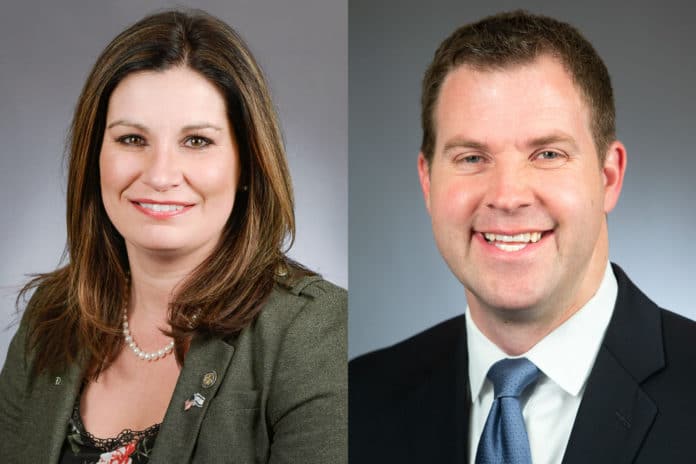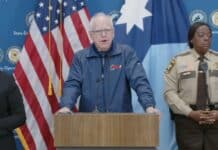A Republican representative blasted a House committee chair this week for not allowing groups with opposing views to testify against a clean fuel standards bill.
House File 2083 seeks to bring California’s clean fuel standard to Minnesota in an effort to reduce greenhouse gas emissions by 20% by 2035. Enforcing the standard could raise gas prices by 20 cents a gallon, according to research from the Center of the American Experiment.
The House Climate and Energy Committee held an informational hearing on the bill Tuesday and allowed several pro-climate justice groups to testify in favor of the bill.
However, groups with opposing opinions, including the Center of the American Experiment, were told they could send letters to the committee and were not allowed to speak at the hearing, according to Rep. Mary Franson, R-Alexandria, and a statement from American Experiment.
“For a while there I thought maybe I’m in Russia, because this has just been one infomercial of propaganda,” Franson said during the hearing. “Those that had opposing views were told that there was going to be no public testimony and that they could send in letters.”
Representatives from organizations like Minnesota Environmental Partnership, Union of Concerned Scientists, Minnesota 350, and Sierra Club, along with several others, spoke in favor of the bill during a half-hour slot for public testimony. The only opposing views came from people who didn’t think the bill went far enough.
Implementing a clean fuel standard could cause gas prices to rise 20 cents per gallon in the near future and 54 cents in the next 13 years, according to research highlighted by American Experiment. That would eventually require families to pay an extra $210 to $570 per year in gas bills, the think tank said.
“These cost increases will harm rural families, single-parent households, and new arrivals to Minnesota the most because they already spend a higher portion of their budgets on energy costs than more affluent households,” the Center of the American Experiment said in a letter to the committee.
“However, this reduction would only decrease future global temperatures by 0.0002° C by 2100, an amount so small it is impossible to measure with even the most sophisticated scientific equipment,” the letter adds.
Franson called the hearing Tuesday a “sham” and criticized Rep. Jamie Long, a Democrat from Minneapolis and chair of the committee, for his “shameful” actions in not allowing people with opposing views to testify.
“The public has a right to know that their gas bills are going to skyrocket,” Franson said. “Opposition [needs] to be heard so that the citizens of Minnesota can get the full picture of what you and your committee members are pushing.”
Rep. Todd Lippert, DFL-Northfield, chief author of the bill, responded to some of the criticisms.
“I think we heard testimony that this policy is not increasing fuel prices and I heard similar information as I was talking to Oregon officials as well,” he claimed. “We definitely need to be responding to climate change now.”
Rep. Chris Swedzinski, R-Ghent, said in a statement that the bill is being pushed by “tone-deaf Democrats” who wish to impose California’s standards on Minnesota residents.
Swedzinski said Long “cut off Republican legislators after just two questions.”
On the same day of the committee hearing, the Minnesota Department of Transportation and Department of Agriculture released a joint report on clean fuel standards at the request of Gov. Tim Walz.
“This report is the Walz administration’s roadmap to higher gas prices,” said Rep. John Petersburg, R-Waseca. “Once again Gov. Walz is trying to bring California-style regulations to Minnesota and drive up costs for families at time when they’re already struggling with inflation at 40 year highs, $4/gallon gas, and soaring home energy prices.”
Minnesota already has adopted California’s clean car standards.











